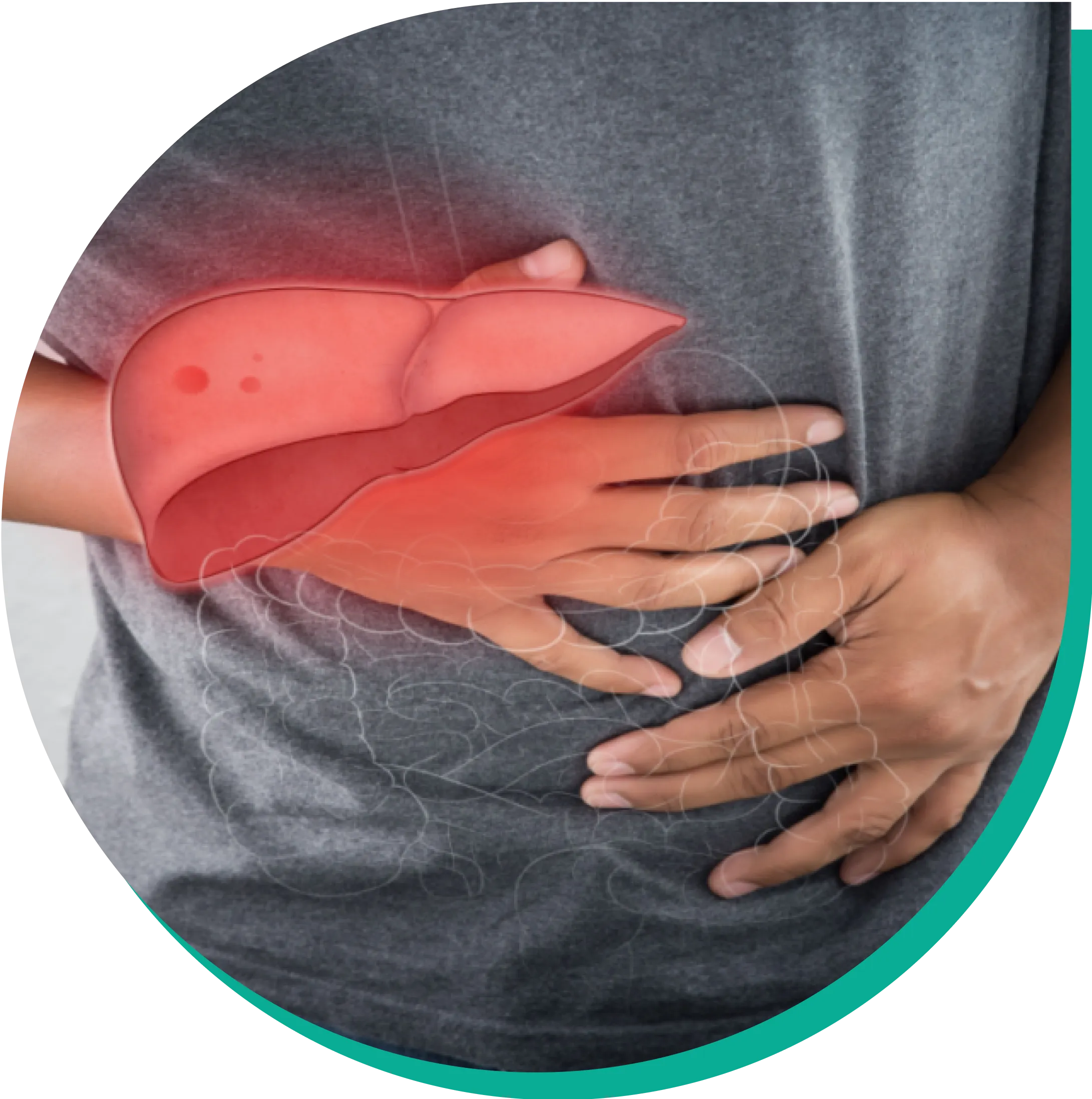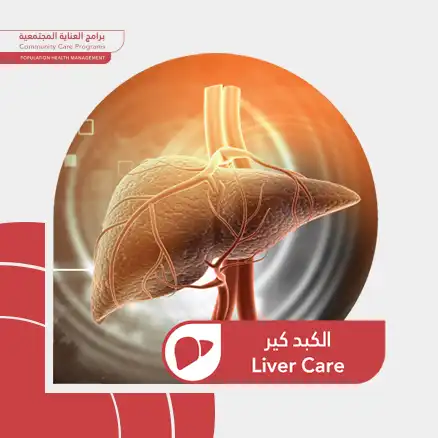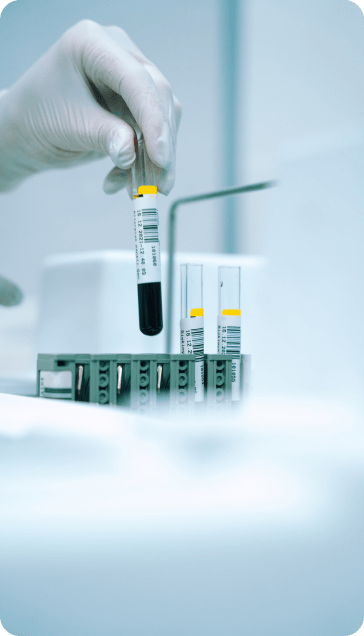
Al Borg Diagnostics
liver cancer symptoms that you should know
Liver cancer is a rare form of cancer. Still, unfortunately, it is one of the most dangerous types of cancer. Therefore, it is essential to raise awareness about its symptoms. In this article, we will discuss the symptoms of liver cancer that should be known: (1)
Liver cancer symptoms
Like other types of cancer, liver cancer goes through several stages, and the early stage is often silent. This means that most people with early-stage liver cancer do not experience any symptoms. Therefore, symptoms start to appear during the later stages of the disease. Keep reading to learn about the symptoms of liver cancer: (1)(2)
Unexplained Weight Loss
Unexplained weight loss is one of the liver cancer symptoms, which means losing weight without intending to, following a diet, or taking weight loss medications or supplements. So, you should consult a doctor if you notice a weight loss of more than 5% of your normal weight without any explanation within six months to a year. (3)(4)
Jaundice
Jaundice refers to the yellowing of the skin, the whites of the eyes, the appearance of darker-than-usual urine, and lighter-than-usual stool. In addition, jaundice is accompanied by the following symptoms: (3)(4)
- Itching of the skin.
- Fever.
- Chills.
It is worth mentioning that the above symptoms appear when there is a dysfunction in the liver, which is associated with various liver diseases, including liver cancer.
Abdominal Swelling
Liver cancer may cause swelling and bloating in the abdominal area, which can be attributed to the following: (3)
- Increased proliferation of cancer cells due to the enlarged size of the liver tumor, leading to swelling on the right side of the abdomen.
- Liver cancer increases pressure on blood vessels, causing fluid accumulation inside them, then pushing fluids into the abdomen, resulting in a condition known as “ascites.”
Other liver cancer symptoms
Liver cancer may be associated with a range of other symptoms, such as: (4)(2)(5)
- Loss of appetite.
- Feeling tired and losing energy.
- Flu-like symptoms.
- Pain on the right side of the abdomen may sometimes radiate to the right shoulder.
- Indigestion.
- Feeling full quickly after eating.
- Nausea and vomiting.
- Enlarged veins in the abdomen.
- Unusual bruising or bleeding.
Effects of Liver Cancer on Hormones
Liver cancer affects the usual levels of certain hormones in the body, causing symptoms that appear in organs other than the liver, such as: (5)
- Elevated calcium levels in the blood (hypercalcemia) lead to nausea, confusion, weakness, and constipation.
- Decreased blood sugar levels (hypoglycemia), sometimes resulting in fatigue and fainting.
- Breast enlargement is known as gynecomastia.
- Shrinking of the testicles in men.
- Increased red blood cell count (erythrocytosis).
- Elevated cholesterol levels.
It is important to note that one or more of the above symptoms does not necessarily mean you have liver cancer. These symptoms can be associated with various other medical conditions. However, you should not ignore these symptoms and consult a doctor if you notice any. The doctor will then perform the necessary tests and examinations. (5)
Diagnosis of Liver Cancer
After discussing the liver cancer symptoms and the importance of consulting a doctor when noticing any of them, we will now explain the diagnostic methods that a doctor may use: (6)(7)
- Medical history and physical examination: The doctor will inquire about your medical history and the symptoms you are experiencing. They will also perform a physical exam to check for swelling, enlargement, or other signs.
- Liver function tests: This help provides an overview of the liver’s health and function. They provide information about protein levels, enzymes, and bilirubin, associated with liver function.
- Alpha-fetoprotein test (AFP): Alpha-fetoprotein usually is present in the liver or the fetal sac. Elevated levels in the blood may indicate liver cancer.
- Imaging tests: The doctor may request imaging tests to detect and evaluate the presence of a tumor in the liver. These tests include ultrasound, computed tomography (CT) scan, and magnetic resonance imaging (MRI).
- Liver biopsy: This procedure involves taking a small sample of liver tissue using a thin needle, endoscope, or surgery. It helps the doctor determine the stage and extent of liver cancer.
You can undergo the tests mentioned above at any of Al-Borg Diagnostics branches and choose the suitable for you from the Liver Care program. They also offer a wide range of tests a competent and highly accurate staff conducts.
References:
- https://my.clevelandclinic.org/health/diseases/9418-liver-cancer
- https://www.mayoclinic.org/ar/diseases-conditions/liver-cancer/symptoms-causes/syc-20353659
- https://www.cancerresearchuk.org/about-cancer/liver-cancer/symptoms
- https://www.nhs.uk/conditions/liver-cancer/symptoms/
- https://www.cancer.org/cancer/liver-cancer/detection-diagnosis-staging/signs-symptoms.html
- https://www.healthline.com/health/liver-cancer#diagnosis
- https://www.betterhealth.vic.gov.au/health/conditionsandtreatments/liver-cancer#signs-and-symptoms-of-liver-cancer




